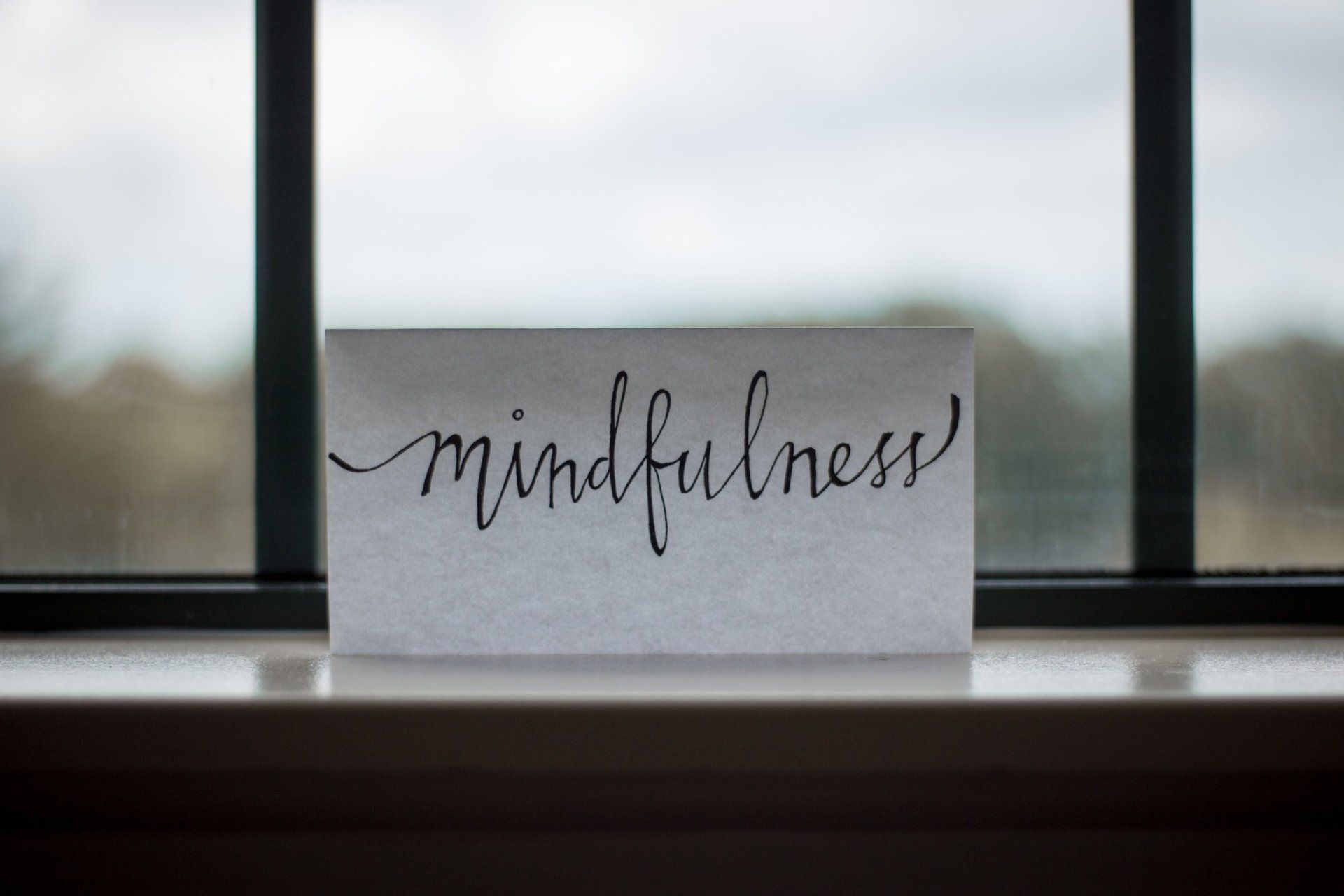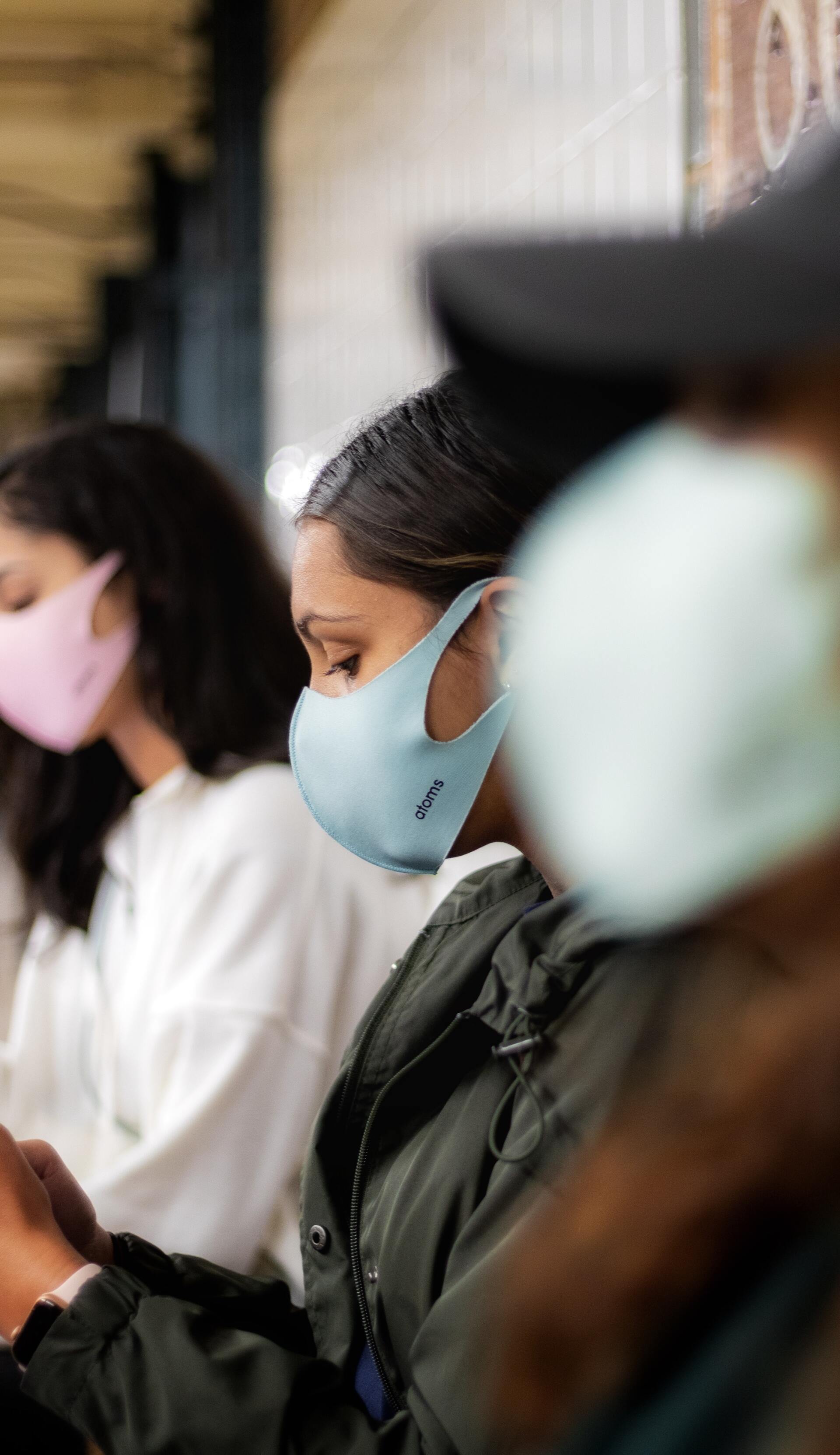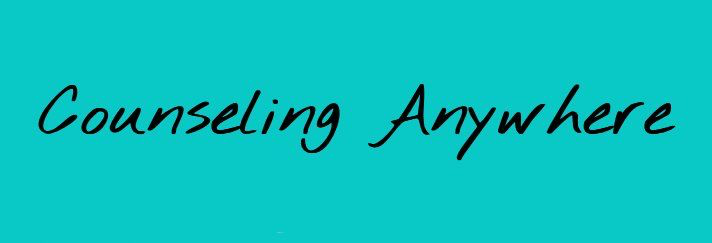6 Ways That Mindfulness Reduces Stress
Stella Versteeg • June 3, 2019
Shifting into a conscious state of mind, focusing on the present moment, and increasing overall awareness is often referred to as mindfulness. Practicing mindfulness consistently has multiple benefits such as improved general health, pain relief, academic success, increased self-awareness, better attention span, increased sense of gratitude, and stress relief. Reducing stress is a common motivation to practice mindfulness, often through meditation, because it is truly effective at doing so. Stress is experienced by all of us, to some degree, and the good news is that there is a simple and holistic way to relieve it... through a daily practice mindfulness. Mindfulness can be practiced through meditation or simply through a more aware and conscious view of our experiences and feelings. There are many ways that mindfulness helps to reduce stress by making us feel calmer, allowing us to regulate our emotions, by reducing activity in the amygdala, and by teaching acceptance, awareness, and gratitude.
1. Developing a Calm Demeanor
It is not a surprise that practicing mindfulness makes us feel calmer; the question is how exactly? Mindfulness meditation reduces the production of a stress hormone called cortisol, resulting in relaxation. Most of us are continuously thinking about errands, social interactions, future plans, and responsibilities which can be anxiety-inducing and overwhelming. Thepresence of this ongoing, inner chatter hinders our ability to focus, be aware, and truly enjoy the present. Practicing mindfulness is a wonderful way to press pause, set everything aside, and re-connect with yourself. Setting aside even 5-10 minutes daily to breathe and meditate is incredibly beneficial for your physical, emotional, and mental well being. Ultimately, you feel calmer, more composed, and more focused.
2. Better Emotion Regulation
The ability to regulate one’s emotions is important because it can lead to mood improvement (ideal for those who experience many ups and downs) and long-term well being. Emotions directly affect our moods which is why it is important to develop another sense of awareness of ourselves through mindfulness. By practicing mindfulness, you can condition yourself to pay more attention to the different feelings and sensations that you experience on a daily basis. Overall, by being more aware of emotions, we are able to experience more compassion, empathy, and understanding while not allowing negative emotions to affect us as much. One incredible benefit that mindfulness meditation offers is resilience which is a buffer when dealing with emotional highs and lows. Set time aside, especially during moments of stress, and simply become aware of what you are feeling. Without trying to suppress anything, observe the effects of your emotions on your body and your mind with patience.
3. Acceptance
The practice of mindfulness has a beautiful way of teaching acceptance and essentially, how to be at peace with your surroundings without trying to alter them. Passing judgment is a common human tendency that is difficult to shake off however, mindfulness allows us to develop a neutral stance towards the feelings and thoughts that we experience. The ability to observe your thoughts passing by, one by one, without trying to alter or criticize anything can be achieved through mindfulness meditation. Accepting feelings of stress and allowing them to pass instead of fighting those feelings makes stress more bearable. The imperfections and difficult moments of life make the good moments even better which is why accepting adversity is so important in terms of combatting stress.
4. Less Activity in the Amygdala
To put simply, the amygdala refers to a set neurons in the brain which is responsible for the processing and regulation of emotions, memory, and survival instincts. This part of the brain is also stimulated when we experience stress and fear. Practicing mindfulness consistently can actually allow us to be more self-aware and concentrated while making better decisions to the decreased activity in the amygdala. Other benefits also include better problem solving skills while facilitating learning and of course, relieving overall feelings of tension and stress. Simply mindfulness habits such as becoming aware of how food tastes and eating slowly, breathing deeply, listening carefully, and focusing on how your body feels while working out can provide these benefits.
5. Increased Awareness
The concept of increasing your overall awareness has already been briefly mentioned but let’s dive deeper into this concept. Most of our actions tend to be automatic due to habit and routines such as eating, drinking, resting, walking, talking, etc. Basic human functions are often taken for granted and of course, this is normal. When we are exposed to something long enough to repeated stimuli, our response decreases just like how we notice the scent of a candle in a room but after a while, we do not notice it anymore. By increasing awareness through mindfulness, we are able to notice and uproot negative tendencies while choosing not to respond with stress or panic in difficult situations. With awareness comes appreciation of the wonderful things we experience daily along with a newfound sense of well-being. That being said, when mindfulness is implemented, awareness eliminates stress.
6. Increased Sense of Gratitude
It’s easy to overlook the beautiful scenery that we see every day and it’s easy to take things for granted. It’s also easy to forget the blessings that exist in our lives because we are used to them being there. Gratitude is an incredibly powerful feeling that can overpower stress. With a mindfulness practice, you become aware of absolutely everything, internally and externally. Then, you go on to accept everything that you are experiencing as part of your journey. After awareness and acceptance, comes gratitude for everything, physical and nonphysical, that surrounds you. It’s difficult to feel stressed and tense when the feeling of gratitude overwhelms you; although your adversity is valid and should not be suppressed, focusing on the good things and people in your life makes difficulties seem manageable and temporary.
Practicing mindfulness, either through meditation or other habits, on a daily basis can provide incredible benefits for your mind and body regarding stress relief. By accepting, becoming more aware, feeling grateful, and embracing a calm demeanor through mindfulness, stress can be reduced.
To read more articles from Stella Versteeg, Click Here
1. Developing a Calm Demeanor
It is not a surprise that practicing mindfulness makes us feel calmer; the question is how exactly? Mindfulness meditation reduces the production of a stress hormone called cortisol, resulting in relaxation. Most of us are continuously thinking about errands, social interactions, future plans, and responsibilities which can be anxiety-inducing and overwhelming. Thepresence of this ongoing, inner chatter hinders our ability to focus, be aware, and truly enjoy the present. Practicing mindfulness is a wonderful way to press pause, set everything aside, and re-connect with yourself. Setting aside even 5-10 minutes daily to breathe and meditate is incredibly beneficial for your physical, emotional, and mental well being. Ultimately, you feel calmer, more composed, and more focused.
2. Better Emotion Regulation
The ability to regulate one’s emotions is important because it can lead to mood improvement (ideal for those who experience many ups and downs) and long-term well being. Emotions directly affect our moods which is why it is important to develop another sense of awareness of ourselves through mindfulness. By practicing mindfulness, you can condition yourself to pay more attention to the different feelings and sensations that you experience on a daily basis. Overall, by being more aware of emotions, we are able to experience more compassion, empathy, and understanding while not allowing negative emotions to affect us as much. One incredible benefit that mindfulness meditation offers is resilience which is a buffer when dealing with emotional highs and lows. Set time aside, especially during moments of stress, and simply become aware of what you are feeling. Without trying to suppress anything, observe the effects of your emotions on your body and your mind with patience.
3. Acceptance
The practice of mindfulness has a beautiful way of teaching acceptance and essentially, how to be at peace with your surroundings without trying to alter them. Passing judgment is a common human tendency that is difficult to shake off however, mindfulness allows us to develop a neutral stance towards the feelings and thoughts that we experience. The ability to observe your thoughts passing by, one by one, without trying to alter or criticize anything can be achieved through mindfulness meditation. Accepting feelings of stress and allowing them to pass instead of fighting those feelings makes stress more bearable. The imperfections and difficult moments of life make the good moments even better which is why accepting adversity is so important in terms of combatting stress.
4. Less Activity in the Amygdala
To put simply, the amygdala refers to a set neurons in the brain which is responsible for the processing and regulation of emotions, memory, and survival instincts. This part of the brain is also stimulated when we experience stress and fear. Practicing mindfulness consistently can actually allow us to be more self-aware and concentrated while making better decisions to the decreased activity in the amygdala. Other benefits also include better problem solving skills while facilitating learning and of course, relieving overall feelings of tension and stress. Simply mindfulness habits such as becoming aware of how food tastes and eating slowly, breathing deeply, listening carefully, and focusing on how your body feels while working out can provide these benefits.
5. Increased Awareness
The concept of increasing your overall awareness has already been briefly mentioned but let’s dive deeper into this concept. Most of our actions tend to be automatic due to habit and routines such as eating, drinking, resting, walking, talking, etc. Basic human functions are often taken for granted and of course, this is normal. When we are exposed to something long enough to repeated stimuli, our response decreases just like how we notice the scent of a candle in a room but after a while, we do not notice it anymore. By increasing awareness through mindfulness, we are able to notice and uproot negative tendencies while choosing not to respond with stress or panic in difficult situations. With awareness comes appreciation of the wonderful things we experience daily along with a newfound sense of well-being. That being said, when mindfulness is implemented, awareness eliminates stress.
6. Increased Sense of Gratitude
It’s easy to overlook the beautiful scenery that we see every day and it’s easy to take things for granted. It’s also easy to forget the blessings that exist in our lives because we are used to them being there. Gratitude is an incredibly powerful feeling that can overpower stress. With a mindfulness practice, you become aware of absolutely everything, internally and externally. Then, you go on to accept everything that you are experiencing as part of your journey. After awareness and acceptance, comes gratitude for everything, physical and nonphysical, that surrounds you. It’s difficult to feel stressed and tense when the feeling of gratitude overwhelms you; although your adversity is valid and should not be suppressed, focusing on the good things and people in your life makes difficulties seem manageable and temporary.
Practicing mindfulness, either through meditation or other habits, on a daily basis can provide incredible benefits for your mind and body regarding stress relief. By accepting, becoming more aware, feeling grateful, and embracing a calm demeanor through mindfulness, stress can be reduced.
To read more articles from Stella Versteeg, Click Here

Mindfulness encompasses a variety of definitions although most are similar in concepts. Mindfulness is described as an awareness that arises from purposely paying attention in the present free from any judgements. Mindfulness is a state of awareness of ones emotions, thoughts, and sensations when each occurs. A third definition of mindfulness is a nonjudgmental state of awareness of present experiences. Various interpretations exist dependent on the context in which mindfulness is being examined. For example, mindfulness can be examined in improving emotional regulation and as a coping tool for stress management. Mindfulness is being in the present moment in ones body in a fully conscious state, aware of ones own experiences without judgement or narrative- just being in the moment in the here and now with an acceptance of how things are; being aware of our own thoughts, emotions, sensations without being caught up in them- an outside observer of self with an awareness of the moment. Mindfulness can be used throughout the day when walking, eating, and whenever feeling emotionally “charged” to step back and observe internal experiences. Yoga, meditation, and breathing are a few ways to cultivate mindfulness. Being mindful allows for intentional actions and responses rather than living on autopilot without being aware. The benefits of mindfulness are plentiful, and a regular practice is beneficial for enhancing wellness. Being able to stop and really get into the here and now and out of automatic unconscious living enhances feelings of well-being and an ability to respond more effectively with emotional control. Mindfulness can improve experiences and interpersonal relationships alike. Mindfulness is Intentional Living. Give it a try and see what happens. How do you define mindfulness? How do you cultivate mindfulness in your daily life?

Each day in the United States, an average of 3.1 million COVID-19 vaccines are going into people’s arms. According to an April 9 White House briefing, a quarter of the country's adults are now fully vaccinated. The pandemic is not yet over, but vaccination could soon yield a much more normal life, especially for those who have been vaccinated. The Centers for Disease Control and Prevention, for example, now recommends that fully-vaccinated people can visit with each other indoors and travel without quarantining. But for many, reopening comes with its own set of anxieties. According to APA's Stress in America polling, around half of people say they feel uneasy about readjusting to in-person interaction post-pandemic. Ellen Hendriksen, PhD, a clinical psychologist at Boston University's Center for Anxiety and Related Disorders and author of How to Be Yourself: Quiet Your Inner Critic and Rise Above Social Anxiety , is an expert at clinical strategies for calming anxiety. She spoke to APA about what's driving post-pandemic anxiety and how psychologists can best help. What do you think is driving the anxiety many people are feeling about reopening? Anxiety is driven by uncertainty. There is so much uncertainty right now, from the vaccine roll-out to society reopening to the new normal workplace to the virus and the variants themselves. Every day there is more evidence that vaccines keep us and people around us safe, but there are lingering questions about how long immunity lasts, how susceptible kids are to COVID-19, and when they will get vaccinated. Nobody alive today has ever emerged from a global pandemic into a digital world and navigated this before. We're making it up as we go along, so of course we're anxious. Here at the Center, we have the longest waitlist in our 25-year history. So many people are emerging from the pandemic feeling exhausted, burned out, anxious, or depressed. Collectively, our resources are low, which makes it harder to navigate the layers of uncertainty. How can people handle social anxiety and awkwardness around different levels of comfort as places reopen? The fact that reopening is a moving target makes it difficult to align with other people. You and your bubble might be ready to dine in at a restaurant or get on a plane, but the family next door might have a child who is immunocompromised and is living as they were in January. There are more variables to manage compared with before the pandemic. Plus, social anxiety is driven by avoidance, and we've all been avoiding social interactions for the better part of a year. The fact that we're all rusty is going to make us feel wobbly as we re-enter. It's OK to say we don't know how to do this, and it's OK to ask people what they're comfortable with. That normalizes the uncertainty and awkwardness, and it's quite validating to say, “What are we doing?” or “How does this work?” It can help you feel like you are united with the other person against this larger problem, as opposed to negotiating one against the other. This is a strategy borrowed from couples therapy, where it is often highly effective. How can people feel more comfortable with re-entry? There's one question I've been getting over and over from people who struggle with social anxiety. They'll say, "I did so much work pre-pandemic to get to the point where I could give a presentation or raise my hand in class." They’re worried they’ll be back at square one when they are again in large groups. But social confidence is like a muscle. If you have done work on your social anxiety in the past, that architecture is still there. It will feel awkward at first, but it will come back faster than the first time around. As for feeling comfortable returning to everyday activities, there are dozens of points of re-entry. There will be a first time on public transportation, a first time in someone's house, a first time taking a rideshare. We'll work our way up to large gatherings. Just because you feel rusty or nervous doesn't mean you're doing it wrong. It means you're getting back out there. Your brain will recalibrate with experience. We all need love, support, and community. Studies show that the quality of our relationships predict our future health, happiness, and even longevity, so it's worth it to push ourselves a little to get the interaction we all need, even if we are the most introverted of introverts. What should psychologists keep in mind for helping their clients right now? Psychologists have a big job ahead of us. It may be hard to balance supporting and pushing our clients simultaneously. It’s important to support each individual’s comfort level and choices, but psychologists also need to notice and address life-limiting avoidance. These are anxious, uncertain times, but there is also a sense of hope and renewal. It is an honor that we as psychologists get to play a leading role. Article by Stephanie Pappas from the American Psychological Association (APA)

Imagine you are sitting in a car, and you are driving down a lonely highway. Suddenly, in the middle of nowhere, a warning light goes off. Your oil pressure is very low. If you just ignore it and continue your drive, you run the risk of doing serious damage to your engine. You know you can get a tow, but this is going to take a while. As you are considering your next step, you suddenly remember a trick about how you can short circuit the warning light. This would not change anything about the engine—it would still be starved for oil—but the low-pressure signal would no longer be blinking on your dashboard, and you could ignore it more easily. Here’s the question: Should you do it? Unless you are seriously intoxicated (at which point you shouldn’t be driving at all), you won’t hesitate to say “no” to that impulse. Rightly so. Turning off the light will not do anything for you. The light is just the messenger, and not the problem in itself. Instead, you would be better advised to take in the information and deal with the situation. This is easy and intuitive to understand when it comes to external problems like car maintenance. It’s much more confusing, however, when the problems occur internally. When we are confronted with difficult emotions like anxiety, depression, stress, grief, anger, or loneliness, we are quick to search for the off-button on our emotional dashboard instead of taking in the messages they contain. Make it stop! Give me the wine and cigarettes. Let me cancel this appointment. Engage me on social media. Show me the movies and video games. Do whatever, but just make it stop! This is often our first response when difficult emotions show up: We try to mute the signal. But emotions are not the problem. They are merely messengers. And the messages they carry deserve at least to be heard. They often contain important lessons, and can call us to helpful actions. Often they show us opportunities. What Emotions Can Signal Fear might show us that danger is up ahead, and we better prepare ourselves. Loneliness might urge us to prioritize close relationships. Grief might open us up to what is important and meaningful to us, while calling out for social connection and support. Your dashboard doesn’t need to be covered up. It needs gentle attention. No, the dashboard isn’t everything—you still have a road to see and navigate. When emotions arise, you can ask yourself: “What am I feeling right now?” and “Where can I feel it?” and “What does my emotion ask me to do?” and “What does this suggest I am yearning for?” No one turns their driving over to a dashboard, but questions like these help our emotions play their proper role. If it were just negative emotions, this “turn off the indicator” move would be bad enough, but we are similarly incompetent when it comes to positive emotions. Imagine noticing on your car’s dashboard that your fuel tank is full. Oh, joy! You want it to stay this way, and so you decide to rewire so that the gauge always remains full. And people avoid positive emotions too! When we feel joy, we sometimes focus on how we will feel when it goes away, so we try never opening up to joy at all. That would be like the person who just disconnects the fuel gauge altogether so that she will never be disappointed when the fuel runs out because she never allowed herself to notice it was full in the first place. All of this is self-defeating, and yet it’s exactly what many of us do when we feel happy or sad or anxious or hopeful or depressed or satisfied. We like feeling this way, and never want it to stop, and so we cling onto this pleasant feeling, in the hopes of never losing it. Or we detune so it won’t be noticed when it stops, as if being numb is the definition of happiness. We dislike feeling this way, so we push it away as if feelings are the enemy. Feelings are not just about like and dislike. They are how our past and present impact us. They help train our ability to notice what is present, based on what we’ve experienced in the past. They’re like dashboard gauges that help us adjust to the challenges of our life journey. Emotions are temporary. They aren’t meant to be avoided, nor are they meant to be clung to. They are meant to come and go, flowing through you in their own time. They contain important lessons when things are off, and beautiful rewards when things fall into place. Allowing emotions to be there when they occur, to listen closely to their message, to feel them fully with neither clinging nor needless defense, allows them to serve their proper role. Your emotions are not the problem, so feel fully, embrace the change, move forward, and learn how to drive. For more on the Author: Steven C. Hayes, Ph.D.


